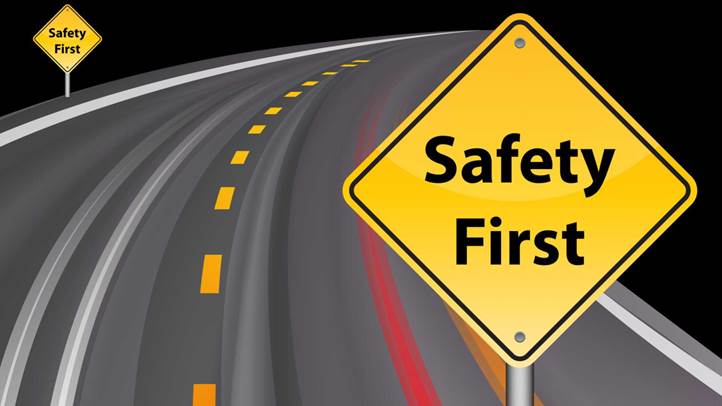ROAD SAFETY

Copyright infringement not intended
In News
- Recently released data by the National Crime Records Bureau showed that over 1.55 lakh people died in road accidents in 2021, the number is high as compared to the 1.33 lakh deaths in 2020.
- The Union Ministry of Road Transport and Highways has released a video suggesting people to wear seat belts to reduce the impact of an accident by 80%.
- The parliament has passed the Motor Vehicles (Amendment) act 2019 to ensure road safety.
The Motor Vehicles (Amendment) Act, 2019
- The Motor Vehicles (Amendment) Act, of 2019 amended the Motor Vehicles Act of 1988.
- The Motor Vehicles Act, of 1988 regulates the licensing and registration of motor vehicles and drivers.
- The main objectives of the amendment act are to address several issues such as;
- Road Safety.
- Third-party insurance.
- Regulation of taxi aggregators.
- Recall unsafe vehicles.
- Compensation for victims in case of road accidents.
- The Union government has initiated a scheme for cashless treatment of road accident victims during golden hour.
- Golden hour is the period of up to one hour following an accident, during which the likelihood of preventing death through prompt medical care is the highest.
- The act increased the minimum compensation for hit and run cases as;
- In case of death, from Rs 25,000 to two lakh rupees.
- In case of serious injury, from Rs 12,500 to Rs 50,000.
- The Union government has created a Motor Vehicle Accident Fund, to provide compulsory insurance cover to all road users in India. The fund will be utilised for:
- Treatment of persons injured in road accidents during the golden hour.
- Compensate the family of a person who died in an accident.
- Compensate the person injured in a hit-and-run accident.
- The act defines a good samaritan as a person who provides emergency medical or non-medical assistance to a victim at the accident site. The assistance must be;
- In good faith.
- Without the expectation of any reward.
- Good samaritan will not be responsible for any civil or criminal action for any injury to or death of an accident victim caused due to their negligence in assisting the victim.
- The Union government can order for recall of motor vehicles if a defect in the vehicle may cause damage to the environment, the driver, or other road users.
- Developing a National Transportation Policy, in consultation with state governments. The Policy will:
- Establish a planning framework for road transport.
- Develop a framework for the grant of permits.
- The act provides for a National Road Safety Board, to be created by the central government through a notification. It will advise the central and state governments on all aspects of road safety and traffic management including:
- Standards of motor vehicles.
- Registration and licensing of vehicles.
- Standards for road safety.
- Promotion of new vehicle technology.
- It increased penalties for several offences under the Act.
- The maximum penalty for driving after consuming alcohol or drugs has been increased from Rs 2,000 to Rs 10,000.
- If a vehicle manufacturer fails to comply with motor vehicle standards, the penalty will be up to Rs 100 crore, imprisonment of up to one year, or both.
Concern
- With growing urbanisation and rising incomes, the number of motor vehicles in India has been increasing steadily.
- The increased number of vehicles on roads, along with the lack of a coordinated policy has increased the number of road accidents.
- Compliance with seat belts in the rear seat is poor in India. For most people, wearing seat belts is mandatory only for the front seat.
- Sometimes people prefer to sit in the back just to avoid wearing a seat belt.
- Two-wheelers drivers usually don’t wear helmets or wear cricket helmets that offer very little protection in an accident.
- Existence of a large number of agencies at the centre and state with little coordination among them.
- Poor enforcement of traffic laws.
Way Forward
- Policy interventions, technological upgrades, and awareness campaigns can improve road safety and reduce road accidents or death due to the accidents.
- We need to create an institutional framework to bring about systemic changes, instead of routine police drives against people who drive without seat belts or helmets.
- Instead of looking at the examples of the US and Sweden to develop an Indian road safety policy, it would be better to look at Brazil or China since they would be of greater relevance.
- Any measure for improving road safety and traffic management would not be successful unless the menace of corruption is taken care of.
https://t.me/+hJqMV1O0se03Njk9




1.png)
